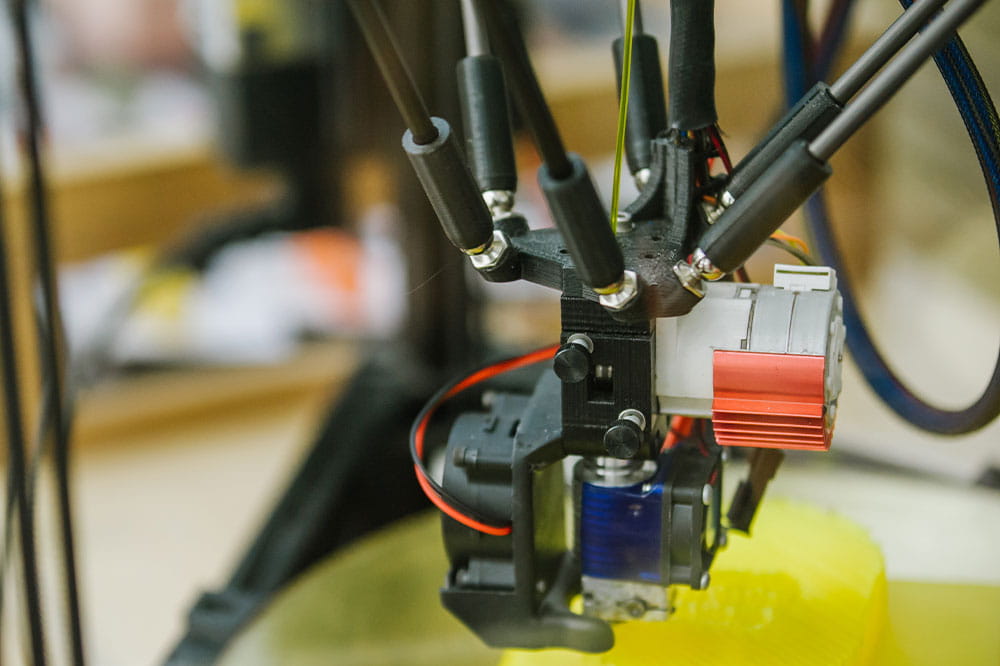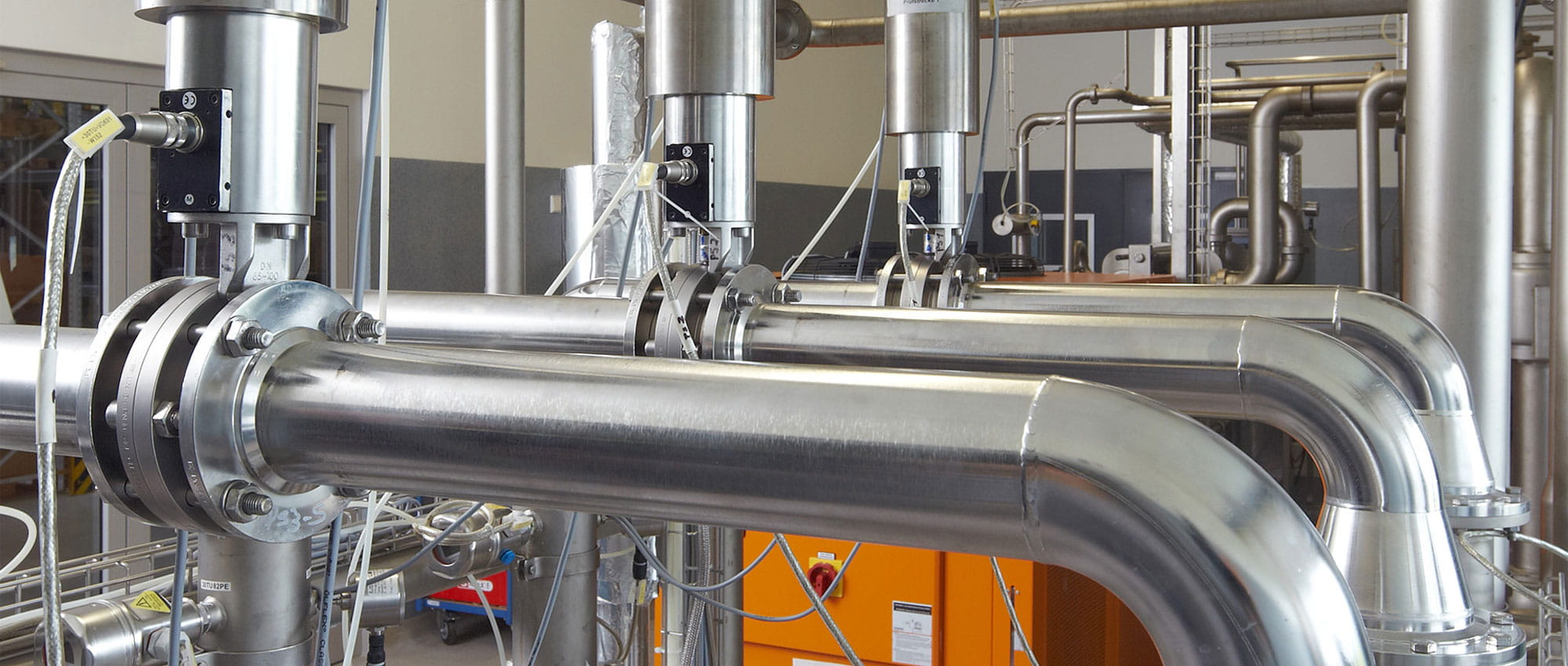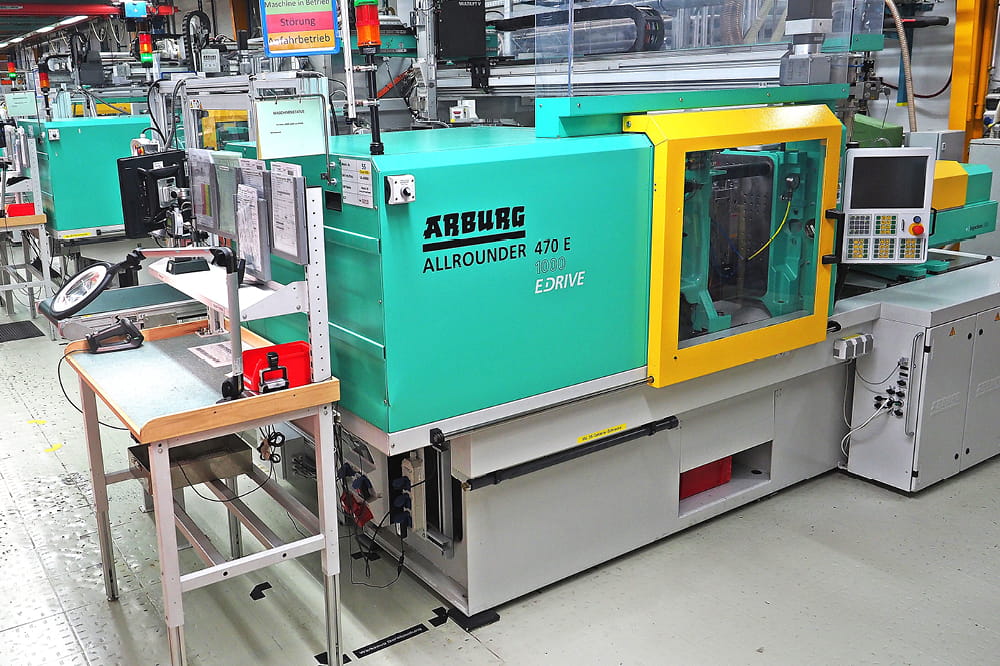Obtain news and background information about sealing technology, get in touch with innovative products – subscribe to the free e-mail newsletter.

Delta Robots
Delta Robots: Three Arms for Swift Movements
Specialists in Industrial Robotics for Packaging, Order Picking, and Pick & Place Tasks
Lightweight and agile, delta robots stand among the distinguished specialists in industrial robotics. Typically featuring three arms arranged in the configuration of a Greek delta with parallel kinematics, these robots excel in executing intricate movements with exceptional speed and precision. Their motors reside in the static base, usually affixed to the ceiling rather than within the joints, rendering the three arms remarkably light and capable of swift motion. This makes them an ideal choice for automation applications, notably in industries such as food, pharmaceuticals, and electronics.
Despite their initial appearance of high rigidity, delta robots are increasingly employed in surgery due to their ability to perform delicate operations with minimal invasiveness and unparalleled accuracy.
In automated industrial applications, ensuring the reliability and longevity of delta robots is paramount. First-class seals play a crucial role in this regard, safeguarding against leakage, reducing maintenance needs, and mitigating potential production downtime. Freudenberg Sealing Technologies' high-performance seals contribute significantly by extending equipment life, curbing maintenance costs, and enhancing overall equipment efficiency.
What Sets Delta Robots Apart From Other Industrial Robots?

-
Exceptional Precision
Unlike robots using serial kinematics, where inaccuracies can accumulate along axes, delta robots maintain consistent accuracy owing to their parallel structure. -
Lightweight Arm Construction
With motors positioned at the base instead of the joints, delta robot arms are notably lightweight. This design minimizes mass movement, resulting in enhanced speeds and dynamics. -
Swift Speeds and Accelerations
Capable of achieving remarkably high accelerations, reaching up to 90 g, delta robots are perfectly suited for applications demanding rapid and precise motions.
Delta Robot Disadvantages:
- Restricted Working Range
Delta robots generally feature a limited working range, typically reaching up to 1600 mm, which is comparatively constrained compared to other robot types. - Limited Payload Capacity
In comparison to other robot variants, delta robots have a significantly restricted maximum payload capacity. - Reduced Mobility and Flexibility
Delta robots exhibit comparatively less mobility and flexibility in contrast to six-axis articulated robots.
Sealing Materials for Delta Robots
Varied Applications and Diverse Material Needs
Delta robots have evolved into a pivotal component within the automation of various industrial processes and are now extending their presence into other domains where precision and rapidity are paramount.
- Packaging Industry
Delta robots efficiently pack products in the food and pharmaceutical sectors, swiftly executing sorting, alignment, and repackaging tasks. - Food Processing
Utilized for sorting, packaging, and quality control of food items like sweets, snacks, meats, and baked goods within the food industry. Electronics Assembly: Well-suited for the swift and precise assembly of small electronic components, notably in manufacturing smartphones, tablets, and other electronic devices. - Pharmaceutical Industry
Employed for handling medicines, filling pill bottles, and packaging pharmaceutical products in the pharmaceutical sector. - Laboratories and Medical Tests
Automation of laboratory processes, including automated blood sampling and various diagnostic tests, benefits from the use of delta robots. - Pick-and-Place Tasks
Ideal for swift movement of objects from one location to another, making them well-suited for pick-and-place tasks. - Medicine
Capable of executing highly precise and minimally invasive medical procedures.
Each application area demands distinct requirements for sealing materials. In the food and pharmaceutical industries, emphasis lies on food safety, chemical and temperature resistance, while safeguarding against dust and particles is vital in electronics assembly. Therefore, materials with low abrasion properties are favored. Laboratories and medical facilities necessitate chemical-resistant and sterilizable seals to avert cross-contamination. In automation, high mechanical strength and wear resistance are crucial to sustain continuous operation. Consequently, each domain mandates a precise selection of sealing materials to guarantee the efficiency and durability of delta robots.
Learn More About Materials
Freudenberg Sealing Technologies presents a comprehensive range of premium materials meticulously tailored to address the diverse needs of every application area. Our materials are characterized by properties such as smart/pressure-sensitive skin and high performance.
Related Services
Freudenberg Sealing Technologies provides an extensive array of services, spanning from the creation of optimized seal and lubricant combinations to seal testing conducted within our cutting-edge test center. Additionally, we offer tailored simulations, specialized customer support, and comprehensive training.
News & Stories on Robotics

Join Us!
Experience Freudenberg Sealing Technologies, its products and service offerings in text and videos, network with colleagues and stakeholders, and make valuable business contacts.
Connect on LinkedIn! open_in_new



